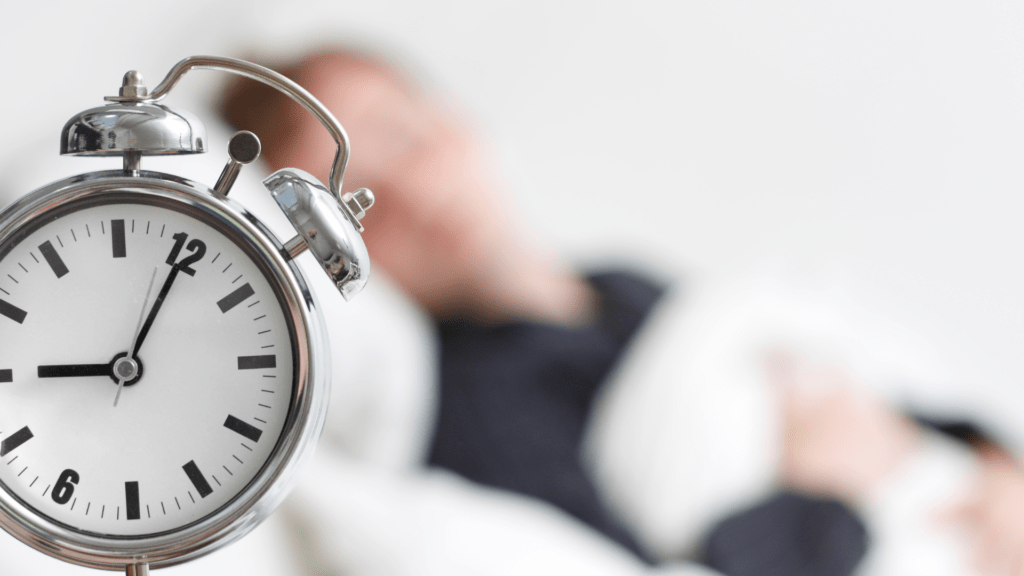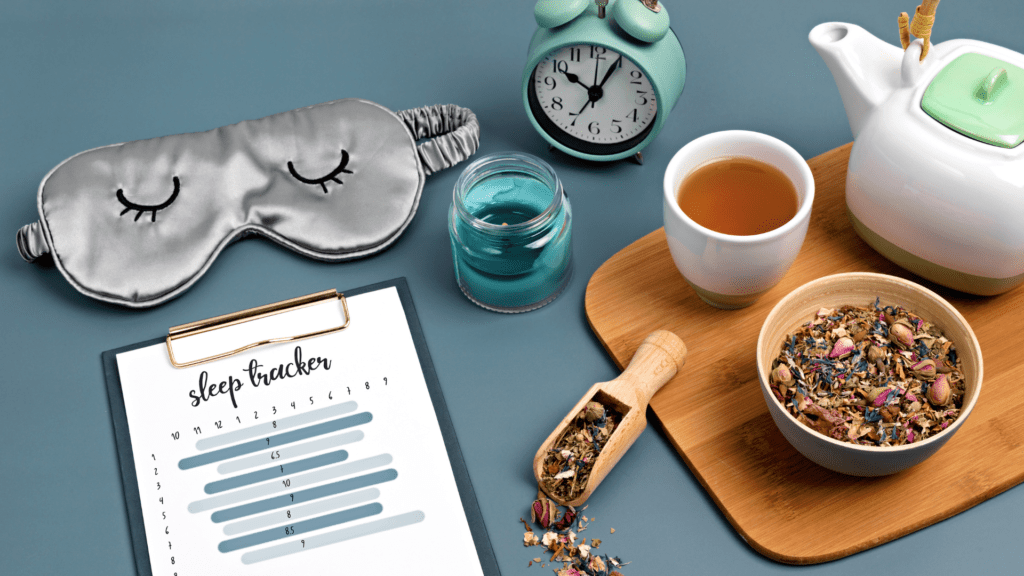Many people think that sleep hygiene is just about keeping your bed clean and fresh, but it’s so much more than that. Sleep hygiene is about building healthy habits that help you sleep better and wake up feeling energized. It involves everything from your daily routines to your sleep environment, all designed to help your body and mind get the rest they need. So, if you’ve been struggling with sleepless nights or waking up groggy, improving your sleep hygiene might be the key to getting back on track.

But what exactly is sleep hygiene? Well, think of it as a collection of practices that set you up for a good night’s sleep. Just like you have hygiene routines for your body, sleep hygiene refers to the habits and practices that promote quality sleep. This can include everything from the time you go to bed, the activities you engage in before sleep, and even how your bedroom is set up. The goal is to establish a sleep routine that supports healthy, restful sleep and ultimately helps you wake up refreshed.
By focusing on sleep hygiene, you can tackle common sleep problems like insomnia, restlessness, and poor sleep quality. It’s not just about how much sleep you get, but how good that sleep is. With the right habits in place, you’ll start to feel the benefits of proper sleep hygiene almost immediately.
Why Good Sleep Hygiene Matters for Your Health
Good sleep hygiene is essential for maintaining your overall health. Most people underestimate just how powerful a consistent sleep routine can be. When you prioritize proper sleep habits, your body gets a chance to recover and recharge, which impacts everything from your immune system to your mental clarity. Poor sleep, on the other hand, can lead to a range of issues, like weakened immunity, mood swings, and even long-term health problems such as heart disease or diabetes.
You might think you can get by on poor sleep or that it’s normal to feel tired all the time, but that’s far from true. Good sleep hygiene can make a huge difference in how you feel each day. When your sleep improves, so does your energy, focus, and even your mood. Quality sleep has a domino effect on the rest of your life—better sleep habits mean better performance at work, better relationships, and a more positive outlook on life.
The Importance of Healthy Sleep Hygiene for Your Circadian Rhythm
One of the key benefits of healthy sleep hygiene is the role it plays in balancing your circadian rhythm. Your circadian rhythm is your internal clock that tells your body when it’s time to sleep and when it’s time to be awake. When this rhythm is thrown off, it can lead to poor sleep habits, insomnia, and even sleep disorders. By practicing good sleep hygiene, you help regulate this natural cycle, making it easier to fall asleep and stay asleep.
If you’re currently dealing with poor sleep habits, don’t worry—you can turn things around. Start by making small adjustments to your daily routine and sleep environment. For example, try going to bed at the same time each night or create a calming pre-bed routine. Little changes like these can have a huge impact on your overall sleep health.
7 Proven Sleep Hygiene Tips for Better Sleep
When it comes to sleep hygiene, many people believe it’s just about getting 8 hours of sleep. While the number of hours does matter, there’s much more to it. Sleep hygiene is not just about quantity; it’s about quality. You could be in bed for 8 hours but still wake up feeling groggy if your sleep habits aren’t healthy. So, if you’ve been focusing only on the clock, it’s time to shift your attention to these proven tips that can truly transform your sleep.

Stick to a Regular Sleep Schedule
The first tip is simple yet effective: maintain a regular sleep schedule. Going to bed and waking up at the same time every day helps regulate your body’s internal clock. This regularity trains your body to know when it’s time to sleep and when it’s time to wake up, which leads to more consistent, restful sleep. Even on weekends, try to stick to this routine to avoid throwing off your rhythm.
By keeping a good sleep schedule, you help prevent sleep disruptions and improve your sleep quality over time. It’s one of the easiest ways to build proper sleep habits that can have lasting benefits on your health and energy levels.
Create a Relaxing Bedtime Routine
The idea of a bedtime routine might sound unnecessary, but it’s one of the most effective ways to improve your sleep hygiene. Before bed, take some time to wind down with activities that calm your mind and body. This could be something simple like reading a book, taking a warm bath, or meditating.
The goal here is to signal to your body that it’s time to relax and prepare for sleep. A consistent bedtime routine not only helps you fall asleep faster but also improves the quality of your sleep throughout the night. Whether it’s dimming the lights or practicing gentle stretches, a relaxing routine can have a significant impact on your overall sleep health.
Make Your Sleep Environment Comfortable
You’d be surprised how much your sleep environment can affect the quality of your sleep. A cluttered, noisy, or uncomfortable bedroom can prevent you from getting the rest you need. Make your bedroom a sleep sanctuary—keep it cool, dark, and quiet. If noise is an issue, consider using earplugs or a white noise machine to drown out distractions.
Comfortable bedding is also key. If your mattress or pillows aren’t supportive, it might be time for an upgrade. When your sleep environment is optimized for comfort, you’ll be able to relax more easily and enjoy deeper, more restorative sleep.
Limit Exposure to Screens and Blue Light Before Bed
One of the biggest sleep killers today is screen time. The blue light emitted by phones, tablets, and computers tricks your brain into thinking it’s still daytime, which suppresses melatonin—the hormone that makes you feel sleepy. To improve your sleep hygiene, aim to power down all screens at least 30 minutes before bed.
Instead of scrolling through social media or watching TV, engage in non-digital activities like journaling or reading a physical book. These alternatives allow your mind to unwind, helping you fall asleep faster and achieve better sleep quality.
Be Mindful of Your Diet and Caffeine Intake
What you eat and drink can have a significant impact on your sleep hygiene. Late-night meals, especially heavy or spicy foods, can cause discomfort and disrupt your sleep. Similarly, caffeine can stay in your system for hours, making it harder for you to fall asleep if consumed late in the day.
To build better sleep habits, try to avoid large meals and caffeine at least 3-4 hours before bed. Opt for lighter snacks like fruits or nuts if you’re hungry before bedtime. This simple dietary adjustment can make a noticeable difference in how well you sleep.
Get Plenty of Natural Light During the Day
Exposure to natural light during the day, especially in the morning, helps regulate your body’s internal clock. This not only improves your mood and energy levels but also helps set the stage for a better night’s sleep.

Try to spend some time outdoors every day, whether it’s taking a walk or just sitting by a window with sunlight. This exposure boosts your circadian rhythm, helping you feel awake during the day and sleepy when it’s time for bed.
Exercise Regularly but Not Too Close to Bedtime
Regular physical activity is one of the most important sleep hygiene habits you can adopt. Exercise helps reduce stress, boosts your energy, and improves sleep quality. However, timing is crucial—working out too close to bedtime can leave you feeling wired, making it difficult to fall asleep.
Aim to exercise earlier in the day, preferably in the morning or afternoon. This will help you feel more relaxed and ready for sleep by the time evening rolls around.
How to Get On a Good Sleep Schedule
Now, if your sleep schedule is all over the place, don’t worry—you’re not alone. A lot of people struggle with staying consistent when life gets busy. But getting on a good sleep schedule is doable, and it’s one of the most effective ways to improve your sleep hygiene. Here’s how you can start.
First, gradually adjust your bedtime by 15-30 minutes earlier each night until you reach your ideal sleep time. This small shift helps your body adapt without feeling overwhelmed. At the same time, set a fixed wake-up time that you stick to every day, even on weekends. This consistency is key to developing a healthy sleep schedule.
If you’re having trouble winding down at night, try using calming techniques like deep breathing or progressive muscle relaxation. These methods help ease any tension and signal to your brain that it’s time for sleep.
Also, be mindful of naps. While a short power nap can be refreshing, long or late-afternoon naps can mess with your ability to fall asleep at night. Aim to keep naps to 20-30 minutes and schedule them earlier in the day.
By following these steps, you’ll gradually train your body to fall into a natural sleep rhythm, making it easier to fall asleep and wake up feeling refreshed.
The Importance of a Good Sleep Environment
Many people believe that their sleep environment doesn’t matter as long as they get a few hours of shut-eye. This couldn’t be further from the truth. Your surroundings play a huge role in how well you sleep. Think about it—trying to sleep in a noisy, bright, or uncomfortable space is never going to result in a good night’s rest. Creating an ideal sleep environment can be the difference between tossing and turning all night and falling into deep, restorative sleep.
Keep Your Bedroom Cool, Quiet, and Dark
One of the easiest ways to improve your sleep hygiene is by optimizing your sleep environment. Start by keeping your room cool. Studies show that a slightly cooler temperature promotes better sleep, so aim for around 60-67 degrees Fahrenheit. Your body naturally drops in temperature when you sleep, so a cooler room helps this process along.
Next, eliminate noise. Whether it’s traffic, a snoring partner, or even the hum of electronics, background noise can disturb your sleep cycles without you even realizing it. Consider using earplugs or a white noise machine to mask any disruptions.
Finally, block out light. Light exposure during the night interferes with your body’s production of melatonin, making it harder to fall asleep and stay asleep. Blackout curtains or an eye mask can work wonders in keeping your room pitch dark.
Invest in a Quality Mattress and Pillows
Believe it or not, your mattress and pillows could be sabotaging your sleep hygiene. Old, unsupportive bedding can cause discomfort, leading to restless sleep and even aches and pains in the morning. Investing in a quality mattress and pillows designed for your sleeping position can dramatically improve your sleep health.
When choosing a mattress, consider factors like firmness, material, and your typical sleep position. For example, memory foam mattresses are great for contouring your body, while firmer mattresses may offer better support for those who sleep on their back or stomach. The right pillow is also essential—it should keep your neck aligned with your spine to prevent stiffness or strain.
Your bedding should support proper sleep and be comfortable enough to help you relax fully. It’s a small change that can make a big difference in how you feel each morning.
Declutter Your Bedroom for Better Sleep
A cluttered room often leads to a cluttered mind. If your bedroom is messy, it can make it harder for your brain to switch to sleep mode. This mental chaos prevents relaxation and can contribute to poor sleep hygiene.
Keep your bedroom tidy by removing unnecessary items and organizing your space in a way that feels calming. This will help create a more peaceful atmosphere that’s conducive to restful sleep. A minimalist approach often works best—your bedroom should be a sanctuary dedicated to sleep and relaxation, not a catch-all for everyday clutter.
The Most Important Sleep Habit You Need to Adopt
There’s a common misconception that you can get by on just a few good sleep habits and ignore the rest. In reality, sleep hygiene is about consistency across the board. However, if there’s one habit that stands out as particularly important, it’s maintaining a regular sleep schedule. It might not sound glamorous, but sticking to a routine is the foundation for all other sleep hygiene practices.
Why a Consistent Sleep Schedule Matters
Your body craves consistency, especially when it comes to sleep. Having a regular sleep schedule helps regulate your internal clock, or circadian rhythm, which makes it easier for you to fall asleep and wake up at the same time each day. A disrupted schedule, on the other hand, throws off this rhythm and leads to poor sleep quality and fatigue.

Setting a regular bedtime and wake-up time is one of the most effective ways to achieve proper sleep hygiene. Over time, your body will naturally begin to feel sleepy when it’s time for bed, and you’ll wake up more refreshed without the need for an alarm. This consistency is the most important sleep habit because it supports all other healthy sleep practices.
Tips to Stay Consistent with Your Sleep Schedule
It’s easy to let life get in the way of your sleep routine, but maintaining consistency doesn’t have to be hard. Here are a few tips to help you stick with it:
Set a reminder
Set an alarm or notification 30 minutes before your bedtime to remind yourself to start winding down. This makes it easier to transition into sleep mode.
Create a wind-down routine
Activities like reading, meditating, or listening to calming music signal to your brain that it’s time for sleep.
Avoid weekend sleep-ins
It’s tempting to sleep in on weekends, but this can throw off your routine. Try to wake up at the same time every day, even on your days off.
Make sleep a priority
Your health depends on it. Treat your sleep schedule like an appointment you can’t miss.
By following these tips, you’ll establish better sleep habits that support your long-term health and well-being.
How Technology Affects Your Sleep Hygiene
Many people believe that using technology right before bed is harmless as long as they feel sleepy. But the truth is that screen time can disrupt your sleep hygiene in ways you might not even realize. The blue light emitted from phones, tablets, and computers can interfere with your body’s natural sleep rhythms, making it harder to fall asleep and get quality rest. So, while that late-night scroll through social media might seem relaxing, it’s doing more harm than good.
The Impact of Blue Light on Your Sleep
Blue light exposure from electronic devices suppresses the production of melatonin, the hormone that regulates your sleep-wake cycle. This makes it harder for your brain to transition into sleep mode. If you’ve ever felt wired after using your phone or watching TV in bed, this is why.
To improve your sleep hygiene, try to limit screen time in the hour before bed. Instead, engage in more relaxing activities like reading a book, listening to calming music, or practicing mindfulness. If you absolutely must use your devices at night, consider using blue light filters or apps that adjust the lighting on your screens during evening hours.
How to Minimize Technology’s Disruption to Sleep
You don’t have to cut out technology to maintain good sleep hygiene completely, but moderation is key. Here are a few strategies to reduce the impact of technology on your sleep:
Create a tech-free zone
Designate your bedroom as a space free of screens. This helps train your brain to associate your bed with sleep, not with browsing or watching videos.
Set a digital curfew
Try to avoid screens for at least 30-60 minutes before bed. This gives your body time to unwind and shift into a restful state.
Use the “Do Not Disturb” mode
Most smartphones have a feature that silences notifications during certain hours. Take advantage of this to prevent disruptions during your sleep time.
Choose non-screen entertainment
Activities like journaling, drawing, or even listening to audiobooks are great alternatives that won’t interfere with your sleep hygiene.
By making these small adjustments, you can protect your sleep health without giving up your devices entirely.
Why a Healthy Sleep Schedule Is a Key to Sleep Hygiene
There’s a common belief that as long as you get enough hours of sleep, the timing doesn’t matter. However establishing a consistent, healthy sleep schedule is one of the most crucial aspects of good sleep hygiene. It’s not just about how much sleep you get, but when you get it. An irregular sleep pattern, such as sleeping in on weekends or going to bed at different times during the week, can confuse your body’s internal clock and lead to poor sleep quality.
The Science Behind a Consistent Sleep Schedule
Your body operates on a 24-hour cycle known as the circadian rhythm. This internal clock helps regulate when you feel awake and when you feel tired. If you stick to a regular sleep schedule—going to bed and waking up at the same time every day—your body will adjust to these patterns, making it easier for you to fall asleep and wake up naturally. On the flip side, irregular sleep habits disrupt this rhythm and can lead to sleep deprivation, even if you’re technically getting enough hours of sleep.
To promote better sleep hygiene, aim to go to bed and wake up at the same time every day, even on weekends. Over time, your body will sync with this routine, and you’ll find yourself feeling more alert and well-rested throughout the day.
Tips for Establishing a Healthy Sleep Schedule
Creating a healthy sleep schedule doesn’t have to be a challenge. With a few intentional adjustments, you can make it easier to stick to a routine that supports good sleep hygiene. Here are some practical tips:

Set a regular bedtime and wake-up time
Pick a bedtime that allows for 7-9 hours of sleep, and stick to it every night. Do the same for your wake-up time, even on weekends.
Gradually adjust your schedule
If you’re a night owl trying to become an early riser, don’t make a sudden switch. Instead, adjust your bedtime and wake-up time by 15-minute increments every few days until you reach your desired schedule.
Be mindful of naps
While short naps can be refreshing, long naps during the day can throw off your sleep schedule. Try to keep naps under 30 minutes and avoid taking them too late in the afternoon.
Listen to your body
Pay attention to your body’s natural cues. If you feel tired at the same time each night, honor that feeling and head to bed. Forcing yourself to stay up later can interfere with your body’s natural sleep-wake cycle.
By following these tips, you can set and maintain a sleep schedule that supports your overall health and well-being.



